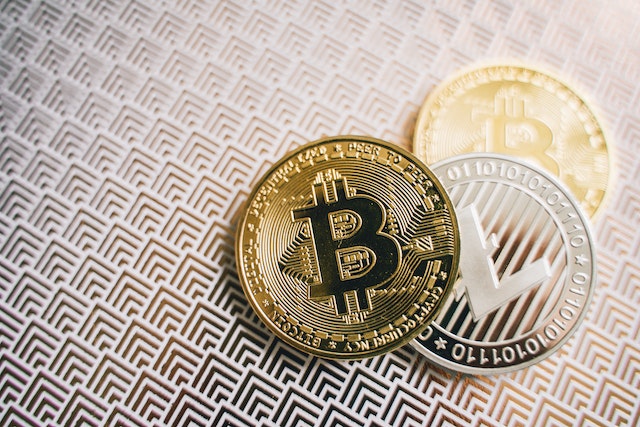
A Deep Dive into Social Media’s Impact on Politics and Finance
TikTok has emerged as an unexpected player in shaping public opinion on political and financial matters. With millions of users worldwide, TikTok’s reach extends far beyond the realm of entertainment, influencing discourse on matters of global significance. In this article, we will delve into the role of TikTok and other social media platforms in shaping public opinion on political and financial issues and explore how this influence can be harnessed or regulated.
TikTok Views: A New Political Arena
TikTok views have become more than just a metric for measuring the popularity of lip-syncing performances or comedic sketches. They are now a vital barometer of political engagement and awareness among the platform’s user base. TikTok’s unique format, which encourages concise and visually appealing content, has allowed for the rapid dissemination of political information and opinions. Users, often with no prior interest in politics, are exposed to a wide range of perspectives and ideas.
The Power of Bite-Sized Content
TikTok’s format poses both challenges and opportunities for political discourse. On one hand, the brevity of videos, limited to 3 minutes or less, encourages creators to condense complex ideas into easily digestible snippets. This brevity can be a double-edged sword, as it simplifies nuanced topics but also enables users to consume political content more readily. As a result, TikTok has become a platform where political engagement thrives, particularly among younger generations.
Amplifying Diverse Voices
One of TikTok’s strengths is its democratization of content creation. Unlike traditional media, TikTok allows anyone with a smartphone to become a content creator and share their perspectives. This inclusivity has amplified diverse voices, enabling individuals from marginalized communities to participate in political discussions. As a result, the platform has become a hub for social justice movements and grassroots activism.
The Impact on Public Opinion
The influence of TikTok and other social media platforms on public opinion cannot be underestimated. These platforms serve as echo chambers, reinforcing existing beliefs while also exposing users to opposing viewpoints. This polarization has implications for political discourse and the formation of public opinion.
Polarization and Echo Chambers
Social media algorithms, designed to maximize user engagement, often prioritize content that aligns with a user’s existing beliefs. This can lead to the formation of echo chambers, where individuals are primarily exposed to information that reaffirms their preconceptions. TikTok is not immune to this phenomenon, as users tend to follow and engage with accounts that share their political views.
Disinformation and Misinformation
The rapid spread of information on TikTok can also facilitate the dissemination of disinformation and misinformation. False or misleading content can go viral, shaping public opinion on critical issues. Addressing this challenge requires a concerted effort from both platform administrators and users themselves to fact-check and critically evaluate the information they encounter.
Harnessing and Regulating Influence
The influence of TikTok and other social media platforms on political discourse raises important questions about harnessing this power for positive change and regulating it to mitigate potential harm.
Empowering Responsible Content Creation
Creators on TikTok can play a pivotal role in shaping political discourse. They have the opportunity to use their platforms to promote accurate information, engage in constructive dialogue, and inspire critical thinking. Platforms can support this by providing resources and incentives for creators who prioritize responsible content creation.
Strengthening Platform Regulations
To combat the spread of disinformation and misinformation, platforms must continue to refine their content moderation and fact-checking processes. Striking a balance between free expression and responsible content management is a challenging but necessary task.
Media Literacy and Education
Empowering users with media literacy skills is essential in navigating the digital age. Educational initiatives, both within and outside of schools, can equip individuals with the tools to critically assess information and discern fact from fiction.
READ ALSO: How to Select the Right Candidate In Politics?
Conclusion
TikTok’s influence on political discourse is a testament to the evolving landscape of social media. While it presents both opportunities and challenges, it is clear that the platform has become a force to be reckoned with in shaping public opinion on political and financial matters. As we move forward, it is imperative that we harness this influence for positive change and work collectively to regulate it, ensuring that the information ecosystem remains conducive to informed, responsible, and constructive discourse.




 The TICKET Act forces ticket sellers and brokers to indicate the ticket base price and all the additional charges that increase the cost of a ticket. Such information must also be shown in events advertisements and in every piece of marketing material used in promoting the event.
The TICKET Act forces ticket sellers and brokers to indicate the ticket base price and all the additional charges that increase the cost of a ticket. Such information must also be shown in events advertisements and in every piece of marketing material used in promoting the event. The debacle incited outrage, as Taylor Swift herself spoke harshly against Ticketmaster’s move to oust fans belonging to the general public sector. Although Ticketmaster later apologized, groups of outraged fans reached out to lawmakers in Congress to put an end to the unethical ticket selling practice of allowing speculative prices that have become a norm among sellers; allegedly ever since Beyonce and Taylor Swift concert tickets became highly in demand.
The debacle incited outrage, as Taylor Swift herself spoke harshly against Ticketmaster’s move to oust fans belonging to the general public sector. Although Ticketmaster later apologized, groups of outraged fans reached out to lawmakers in Congress to put an end to the unethical ticket selling practice of allowing speculative prices that have become a norm among sellers; allegedly ever since Beyonce and Taylor Swift concert tickets became highly in demand.

